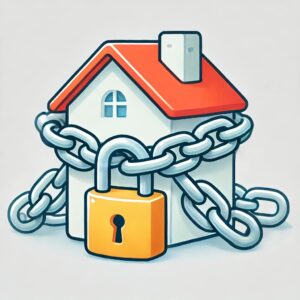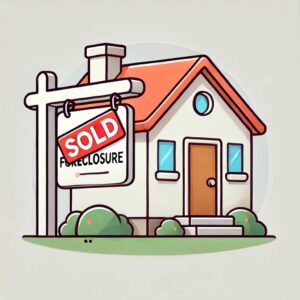 Avoiding Foreclosure Scams: What to Watch Out For
Avoiding Foreclosure Scams: What to Watch Out For
Scammers are well aware of how vulnerable homeowners can be if facing foreclosure. As a result, they often target people in this desperate situation. Fortunately, our attorneys have helped thousands of people avoid a foreclosure scam and save their home for good.
Foreclosure scams come in many forms, but they all have one thing in common: they prey on your hope and fear, ultimately leaving you in a worse position than before.
Here are the most common foreclosure scams, how to spot them, and what you can do to protect yourself and your home.
Common Foreclosure Scams
Foreclosure scams generally follow a few predictable patterns. The most common include:
Foreclosure Rescue
These are companies or individuals who claim they can save your home from foreclosure. The scammers often ask for large upfront fees and promise to negotiate with your lender or stop the foreclosure process.
They might ask for thousands of dollars in advance, claiming they can guarantee a loan modification, refinancing plan, or some other form of relief.
The truth is, no one can guarantee to stop your foreclosure. Only your lender has the authority to modify your loan or delay foreclosure. And any company or individual asking for money before providing services is likely trying to scam you.
 Signing Over Your Deed
Signing Over Your Deed
Another common scam is the “sign over your deed” trick. In this scenario, scammers ask you to transfer the deed to your home to them temporarily, promising that this will allow you to stay in your home and eventually buy it back.
What they don’t tell you is that by signing over your deed, you lose ownership of the property. The scammer can sell your home out from under you, and you’re left with nothing.
Often, victims don’t even realize what’s happened until it’s too late and they’re facing eviction from the new owners.
Lease-Back Schemes
A related scam is a lease-back scheme, where they convince you to sign your home over and then rent it from the new “owner,” with a promise that you can repurchase it in the future.
The scammer then collects your rent but secretly doesn’t pay the mortgage. Eventually, you’re evicted, and the home is sold to a third party.
This type of scam is especially devastating because you think you’re making payments to save your home; but in reality, you’re paying a scammer the whole time and eventually lose your home by surprise.
 How to Spot a Foreclosure Scam
How to Spot a Foreclosure Scam
There are several warning signs to help you avoid falling victim to a foreclosure scam:
1. Upfront Fees
Legitimate foreclosure assistance programs don’t ask for large fees before they provide any services. Be very cautious of anyone who promises to save your home for an upfront payment.
2. Guaranteed Results
No one outside of your bank can guarantee a loan modification or stop foreclosure. Avoid anyone who makes promises or guarantees that sound too good to be true.
Note: If you work with an attorney to file Chapter 13 bankruptcy, the court can protect you from foreclosure. But even at our firm, which has helped thousands of people stop foreclosure, we don’t make promises on behalf of the court. A trustworthy attorney won’t guarantee anything until the court finalizes your payment plan.
3. Pressure to Sign Quickly
Scammers often try to rush you into making decisions or signing documents without giving you time to read or understand them.
Never sign any document without thoroughly reviewing it. If possible, have a trusted attorney or housing counselor review it too. We offer a free consultation where we can answer any questions you might have before signing anything.
 4. Request to Sign Over Your Deed
4. Request to Sign Over Your Deed
Signing over your deed should be a huge red flag. Never give away ownership of your home unless you are fully aware of what that means and, at the very least, have consulted with a lawyer.
5. Communication Issues
Scammers may ask you to stop communicating with your lender, claiming they will handle all negotiations. But it’s critical to stay in direct contact with your mortgage company to understand your debt and keep control over your home.
If you choose to file bankruptcy, a trusted, qualified attorney can deal with your creditors. But you will still have access to your mortgage information and can check your status online or with your bank at any time if needed.
6. Lack of Credentials
Before working with any foreclosure help company or individual, check their credentials:
Are they licensed? Are they affiliated with any recognized housing assistance programs? What is their reputation around town?
If you’re unsure, do some research, and don’t hesitate to ask questions or get a second opinion from an attorney. Again, we offer a free consultation if you need to talk to someone, no strings attached.
 How to Protect Yourself from Foreclosure Scams
How to Protect Yourself from Foreclosure Scams
The best way to protect yourself from foreclosure scams is to stay informed and get help only from trusted sources. Here are a few steps you can take to make sure you’re working with legitimate professionals:
Work directly with your lender.
If you’re struggling to make mortgage payments or have received a foreclosure notice, contact your lender directly. They can provide information on loan modifications, repayment plans, and other options to help you avoid foreclosure.
Seek help from HUD-approved housing counselors.
The U.S. Department of Housing and Urban Development (HUD) offers free or low-cost housing counseling services. These professionals can help you understand your options without charging hefty fees. They’re also familiar with local resources that can assist you.
Consult with a foreclosure attorney.
Look for a licensed and trusted attorney, like the ones at our Memphis firm, who specialize in foreclosure prevention.
We can help you navigate the legal process, review any offers you receive, and help you make the best decisions for your situation.
A good attorney will charge reasonable fees and offer clear, transparent advice without pressuring you.
Know your rights.
As a homeowner, you have certain rights. Federal laws like the Dodd-Frank Act provide protections for homeowners, and some states have their own foreclosure laws. If you’re unsure of your rights, a HUD-approved counselor or attorney can help explain them to you.
 Legal Help to Avoid a Foreclosure Scam and Stop Foreclosure for Good
Legal Help to Avoid a Foreclosure Scam and Stop Foreclosure for Good
If you’re facing foreclosure, it’s easy to feel like you’re out of options, but falling for a scam will only make your situation worse. Be cautious of anyone who promises a quick fix, asks for money upfront, or pressures you into signing over your deed.
Our Memphis attorneys help people stop foreclosure every single day. With the power of the courts, we stop creditors from taking your assets or punishing you for debt you can’t pay.
We can help you get a fresh start and avoid all the scammers out there with false promises. It’s how we’ve built a reputation as one of the most trusted firms in Memphis, with multiple awards for client satisfaction.
To get started with a free consultation, just call us today at 901-327-2100 or contact us via our website. We look forward to helping you.
